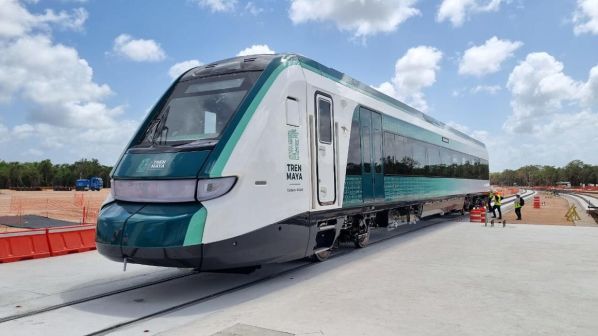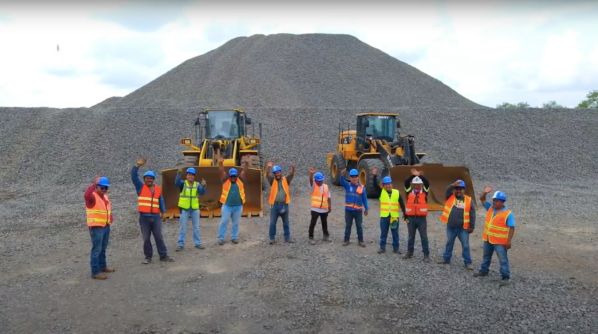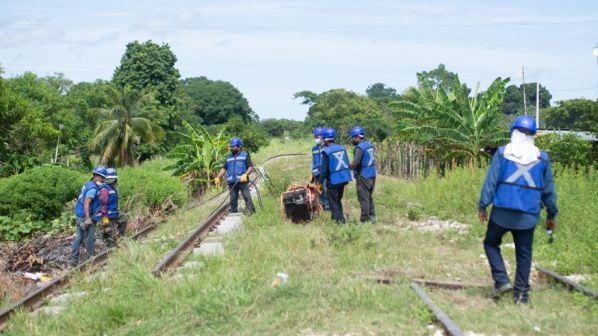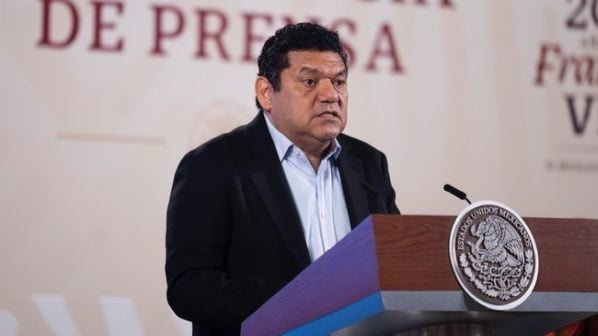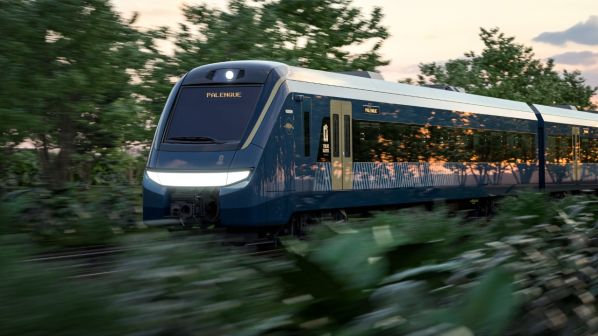ALSTOM has delivered the first of 42 X'trapolis trains for the Mayan Train project to Mexico’s National Fund for Tourism Development (Fonatur), which is overseeing development of the 1500km railway.
The first four-car train departed Alstom’s manufacturing facility in Ciudad Sahagún, Hidalgo, on July 3, arriving at the Mayan Train workshop and depot in Cancún on July 8. Here, they will be assembled into a four-car Xiinbal (Rolling Jaguar) train and undergo testing to validate component functionality and safety prior to network integration and testing.
Alstom says it expects to complete delivery of all 42 X’trapolis trains comprising 219 cars in the fourth quarter of 2024. During a presentation on July 10, the managing director of Alstom Mexico, Ms Maite Ramos Gómez, confirmed that a further two trains will be delivered in August and three in September. A total of 13 trains will be available for the start of service in December.
Fonatur also confirmed on July 10 that 156km of track has been successfully laid on stage 2 of the project, which runs for 234km from Escárcega to Calkiní, in the state of Campeche.
Earlier this month, Fonatur said that 150km of track had been laid on section 1, the 227km stretch from Palenque to Chiapas. In June, the body confirmed that 143km of double track has been successfully installed on stage four of the project, the 257km section from Izamal to Cancun, which is entirely new line construction. Section three, like sections one and two, has involved restoring existing infrastructure, in this case on the 172km stretch from Calkiní to Izamal. In the last update on June 5, Fonatur confirmed that 129km of track had been laid. Around 700km of the Mayan Train is expected to be electrified.
An Alstom-led consortium of Alstom Transport Mexico, Bombardier Transportation México (since acquired by Alstom), Gami Ingeniería e Instalaciones and Construcciones Urales Procesos Industriales signed the €1.3bn contract for the Mayan Train project in June 2021.
The order is divided into three train types:
- 31 Xinbal standard four-car trains of which 10 are DMUs, seven are four-car diesel-electric bi-modes, and 14 are seven-car diesel-electric bi-modes
- eight Jamal four-car diesel-electric bi-mode restaurant trains, and
- three P’atal seven-car diesel-electric long-distance trains.
Each Xinbal train is equipped with air-conditioning, ergonomic and reclining seats, video surveillance systems and passenger information screens, with dedicated spaces for luggage storage. The trains are fully accessible for disabled passengers.
In addition, Alstom will deploy HealthHub and TrainScanner, its digital solutions for condition-based and predictive maintenance. “With these design features, combined with an ability to operate at a maximum speed of 160km/h, these trains will deliver an efficient means of transport and excellent passenger experience,” Alstom notes.
Graphically, the cars depict Mexican art and culture, “reflecting the varied colours and textures of the region’s art,” and feature large panoramic windows.
As well as rolling stock, the Alstom-Bombardier consortium is responsible for equipping the trains with onboard ETCS and installing 1500km of wayside ETCS Level 1 equipment across the Mayan Train network.
“For Alstom, construction of the Mayan Train project means an unprecedented opportunity for the industrial and economic development of Mexico, thanks to the generation of more than 7000 direct and indirect jobs in the local and national railway sector, as well as the contribution to the local economy of 15 Mexican States,” the company noted.
For the latest railway fleet data and project information, subscribe to IRJ Pro.
